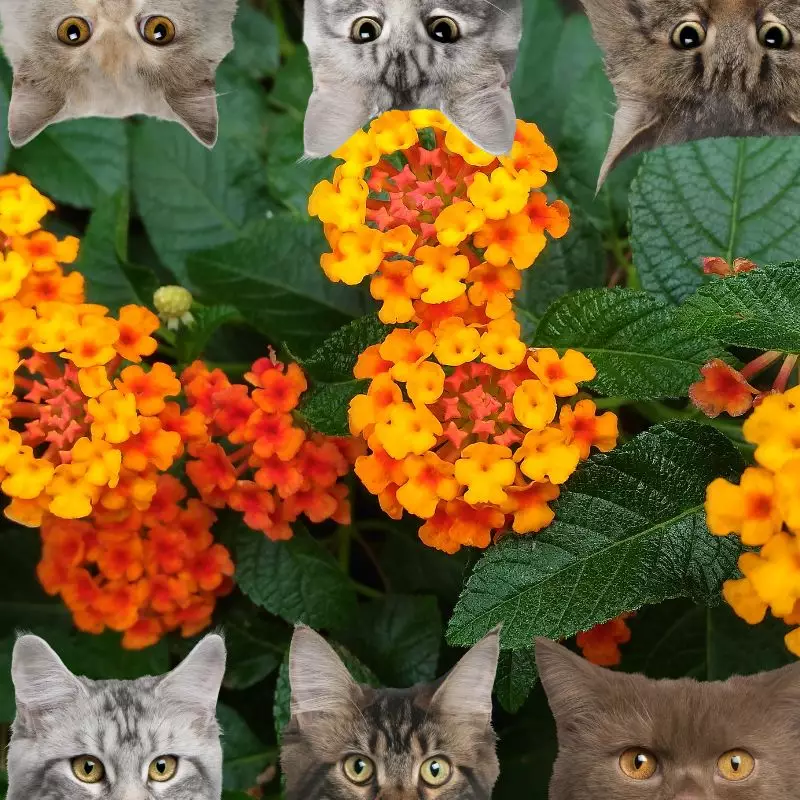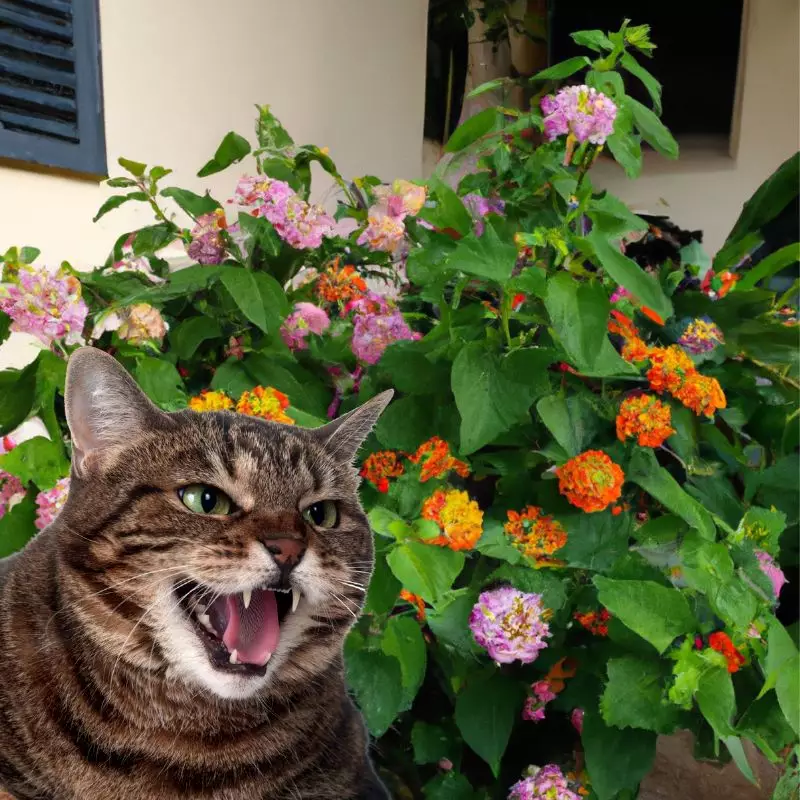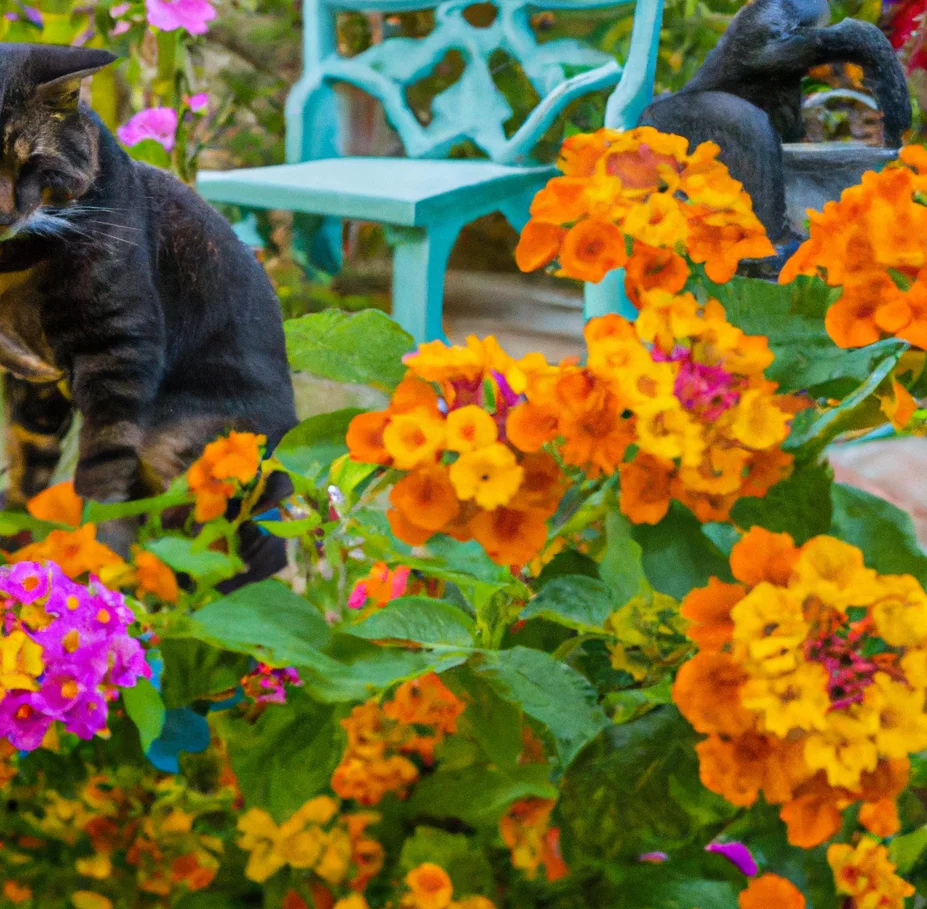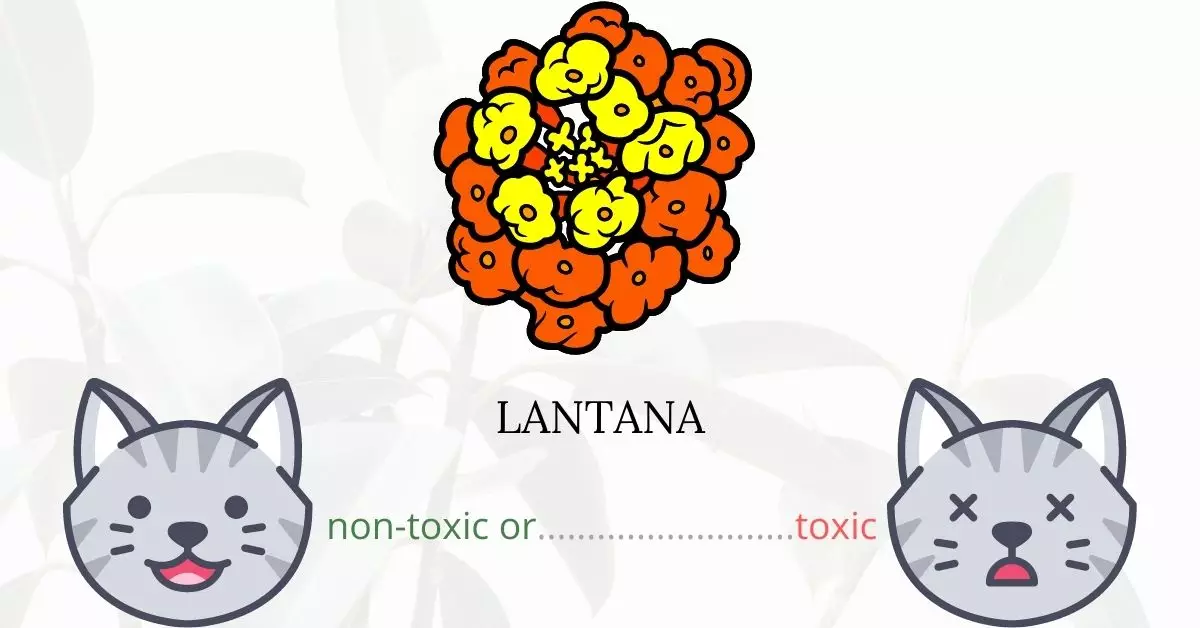Yes, Lantana, commonly known as Shrub Verbena, is toxic to cats. The plant contains pentacyclic triterpenoids, which can be extremely harmful if ingested by our feline friends. Exposure can lead to damage to a cat’s hepatic system, including the gallbladder, bile ducts, and liver. Common symptoms of lantana ingestion in cats include vomiting, diarrhea, and labored breathing. It’s crucial to note that every part of the lantana plant is poisonous, with the berries being the most dangerous. Immediate veterinary treatment is essential if a cat consumes any part of this plant.
This article was crafted in collaboration with a team of experienced DVMs (doctors of veterinary medicine). Their invaluable insights have equipped us with accurate and up-to-date information on the potential risks associated with plants, including Lantana, and their effects on cats. Additionally, our research incorporated information from high-authority sources like ASPCA and PetMD to ensure a comprehensive understanding of every plant’s potential hazards.
Clinical Signs of Lantana or Shrub Verbena Poisoning in Cats

Lantana poisoning can have varied effects on cats, with symptoms often becoming evident within the first 24 hours after exposure. These clinical signs result from the plant’s pentacyclic triterpenoids, which are toxic to cats. Here’s a detailed breakdown of these symptoms:
- Diarrhea with blood: The toxins in the lantana can irritate the gastrointestinal system, leading to inflammation and bloody stools.
- Depression: Cats may become lethargic due to the overall system distress caused by the poison, leading to a decreased interest in activity or play.
- Frequent urination: The toxins can affect the kidneys, causing them to work overtime in an attempt to flush out the harmful substances. This may result in increased urination.
- Loss of appetite: The gastrointestinal distress and general feeling of malaise can cause a cat to lose interest in food.
- Liver failure: Lantana’s toxins are especially harmful to the hepatic system. Over time, if left untreated, this can lead to liver damage or complete liver failure, which is exhibited through symptoms like jaundice.
- Paralysis: In extreme cases, the toxins can affect the cat’s nervous system, leading to partial or complete paralysis.
- Shock: The body’s reaction to the overwhelming toxins can result in a state of shock, wherein the cat’s organs begin to shut down.
- Swelling: Localized swelling can occur, especially if a cat has physically contacted the plant, indicating an allergic or irritative response.
- Vomiting: As a means to rid the body of ingested toxins, a cat may vomit soon after consuming parts of the lantana plant.
- Death: In severe cases, and without timely treatment, the accumulation of these symptoms can unfortunately lead to the cat’s demise.
If you suspect your cat has come into contact with or ingested lantana, it’s imperative to seek veterinary care immediately.
First Aid and Treatment of Lantana or Shrub Verbena Poisoning in Cats

The purpose of lantana poisoning treatment is to alleviate your cat’s symptoms as much as possible. IV fluids and electrolytes are usually delivered, and activated charcoal may be used to absorb toxins. A veterinarian may also conduct a gastric lavage to empty the cat’s stomach. Your cat may require further supportive therapies if issues arise, such as liver inflammation or renal impairment. Other medications may be recommended by your veterinarian to treat your cat’s other ailments.
Recovery from Lantana or Shrub Verbena Poisoning in Cats

If the symptoms were recognized early and the cat was treated swiftly, the chances of recovery are good. Unfortunately, if therapy is not started before liver damage develops, your cat’s prospects of recovery are slim.
Make sure to discuss post-treatment care with the veterinarian to help in your cat’s recuperation. Give your cat more fluids and follow your vet’s advice regarding diet changes.
Prevention of Lantana or Shrub Verbena Poisoning in Cats
It is not recommended to grow lantanas in households with cats. Do your research or ask veterinary professionals before growing or purchasing any plants. Limiting your cat’s outdoor activities will also reduce the risk of exposure to poisonous plants around your neighborhood.
If you love plants but have cats at home, check out these lists:





